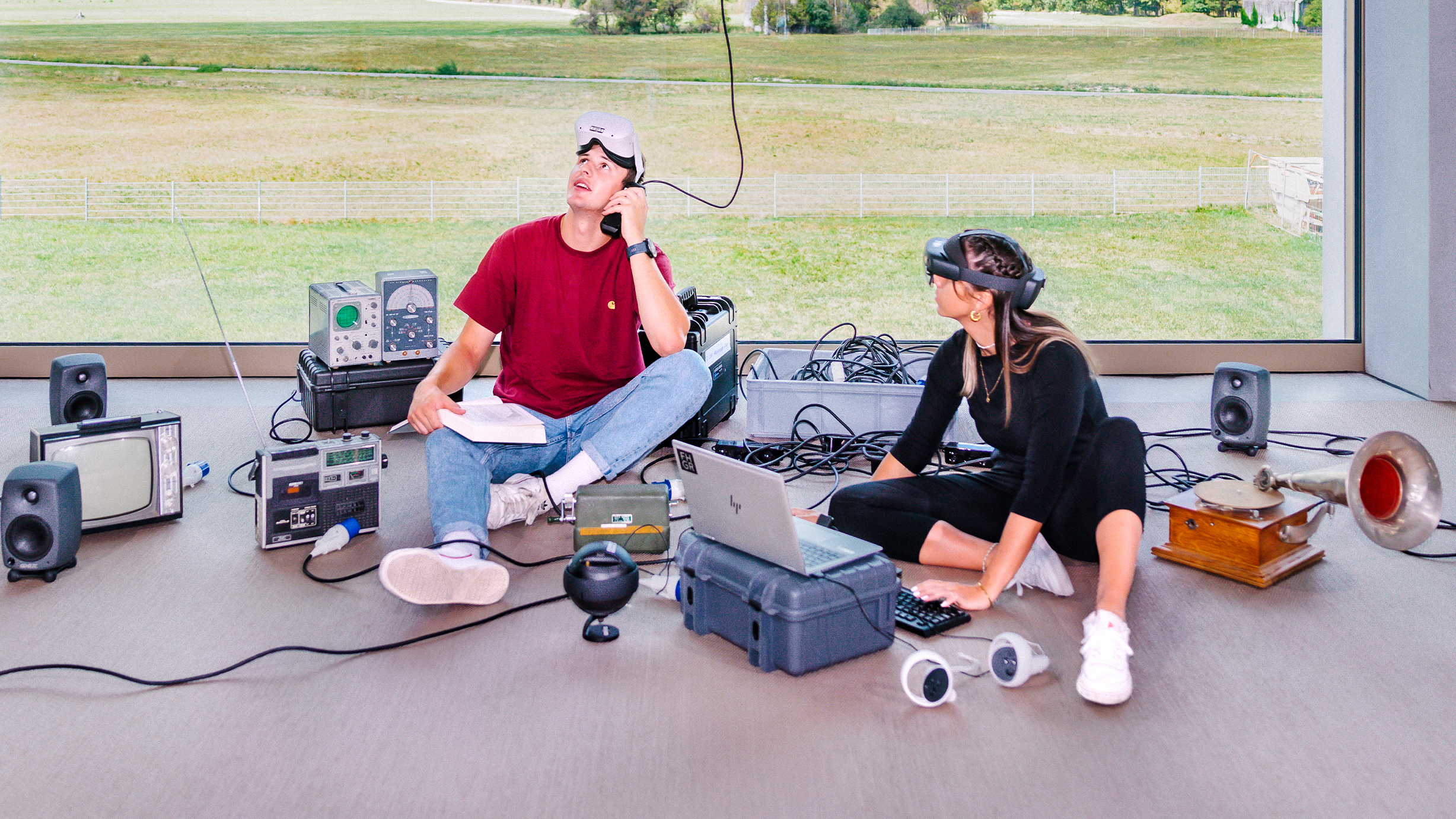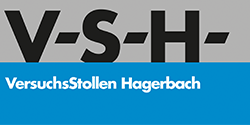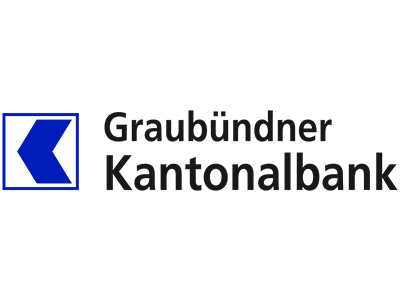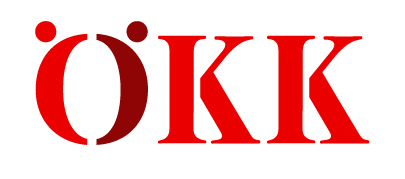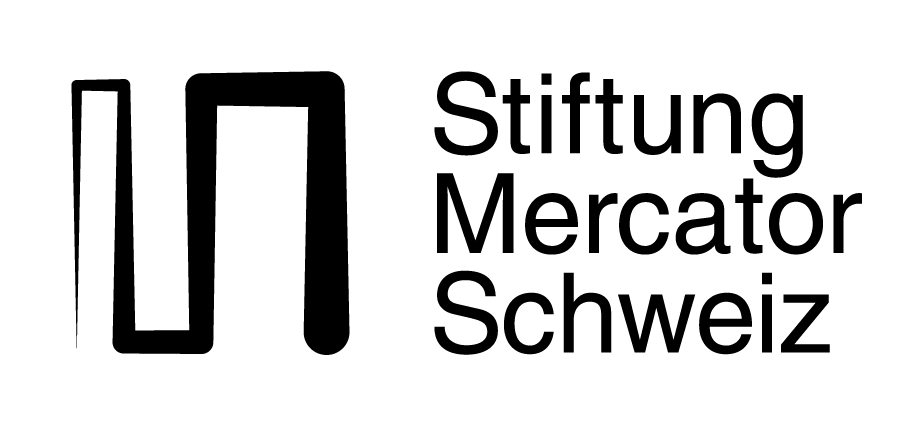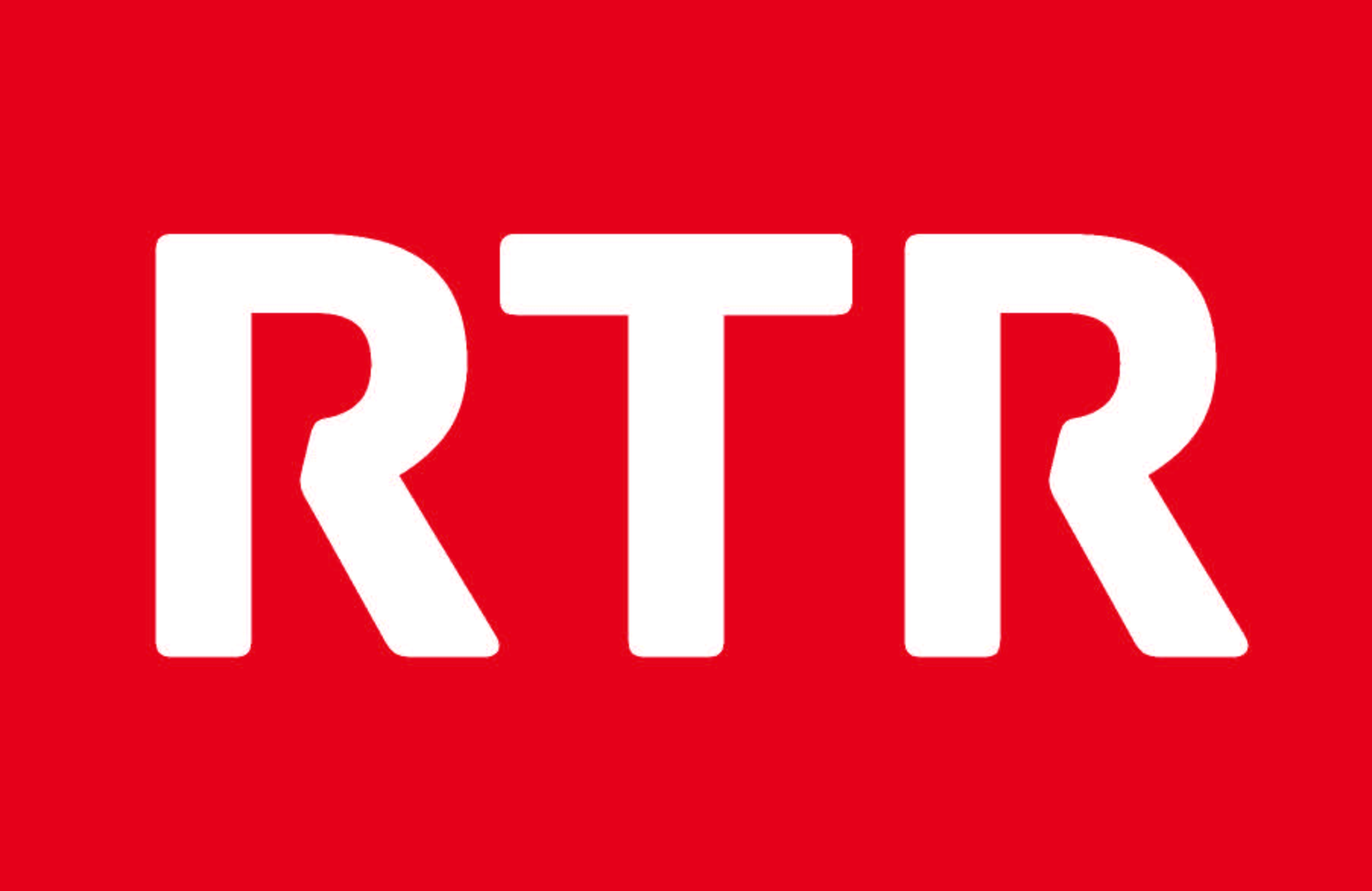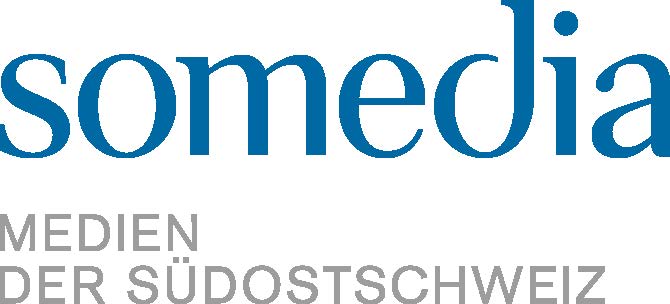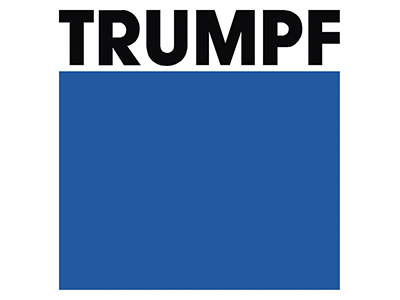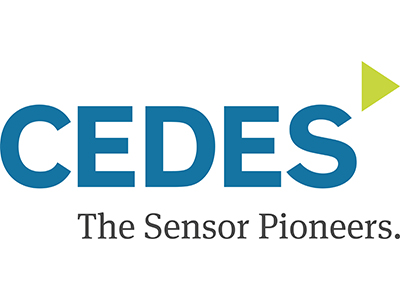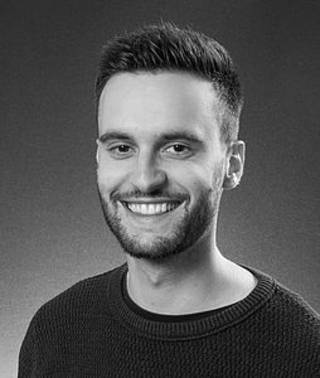Degree programme at a glance
In a world where digital communication is changing rapidly, there is a need for people who can bridge the gap between scientifically sound data and innovative digital applications. In the Master's program in Digital Communication and Creative Media Production, you will learn how to work scientifically and implement technical solutions. To do this, you will immerse yourself in real-world projects, collaborate with companies, organizations, and media houses, and develop solutions for the digital society of tomorrow.
Degree
University of Freiburg and University of Applied Sciences of the Grisons Master of Science in Digital Communication and Creative Media ProductionStudy model
Flexibly configurable full- or part-time courseDuration of study programme
Generally 4 semesters, extendablePlace of study
Basel, Bern, Chur, Freiburg, Zurich, not location-specificBegin of study programme
SeptemberTeaching language
German and English
Joint degree
The Digital Communication and Creative Media Production master's programme is a joint degree offered by the University of Applied Sciences of the Grisons and the University of Freiburg.
Future prospects
The master's program in Digital Communication and Creative Media Production opens up many career opportunities. After completing your studies, you will have knowledge of scientific research and application programming. Because you understand both areas, you will be able to design and plan complex projects in the fields of creative media, media, and communication, and manage their implementation.
You will be able to provide theoretical advice and practical support for technical implementations. This means you will offer employers real added value – as a flexible, competent, and agile interface between different departments.
You can apply the skills from your studies in the following professions:
Digital Project Manager, Projekt Coordinator Digital
End-to-end coordination, agile planning, stakeholders, team organization, delivery
Business Analyst Digital, Requirements Engineer
Translates technical requirements and research findings into clear requirements, user stories, and acceptance criteria.
Digital Experience Designer, Content Experience Designer
Designs interactive digital experiences for communication, education, or mediation, often in interdisciplinary teams
Digital Communications Specialist, Campaign Manager Digital
Plans and implements digital communication with data-based impact measurement and multimedia assets.
Public Engagement Specialist, Digital Participation Coordinator
Designs digital participation formats and dialogue, connects stakeholders, technology, and evaluation.
Advanced and specialized roles
UX Research Associate, User Researcher, Usability Specialist
Plans and conducts user studies, analyzes findings, and feeds them into product and design decisions.
Interactive Data Storytelling, Information Designer, Interactive Visualization Designer
Translates data and research into interactive stories, visualizations, scrollytelling, and dashboards.
Digital Learning Designer, Instructional Designer, Learning Experience Designer
Develops interactive learning formats, didactic concepts, and evaluation, often with simulation elements.
Creative Developer, Interactive Developer, Frontend Prototyper
Builds interactive prototypes and experiences, iterates quickly, closely linked to design and research.
Interactive 3D Prototyper (Unity), Real Time Experience Prototyper, XR Prototyper
Implements 3D and XR prototypes in Unity, often on a project basis and in close coordination with research and content.
Multimedia Producer, Digital Media Producer, Content Producer Digital
Production of video, audio, graphics, text, plus conception and project work in interdisciplinary settings.
Visual Storytelling Producer, Interactive Storytelling Designer, Data Storytelling Producer
Creates audience-oriented, multimedia formats from research and data, often in editorial, NGO, or corporate publishing.
Unity Developer, AR/VR/XR Developer, Real Time 3D Developer
Specialized development role, realistic especially with a strong portfolio and additional technical depth.
Content and study plan
In this joint master's program, you will combine two exciting fields: On the one hand, you will acquire in-depth knowledge in social and communication sciences. On the other hand, you will learn to design, plan, and program digital applications yourself using Unity software.
You will learn to work scientifically, formulate relevant questions, and conduct research. You will summarize your results in scientific papers. These form the basis for practical application: you will design digital applications and bring your data and research results to life – for example, with websites, serious games, 3D, augmented reality, and virtual reality applications, which you will implement yourself using Unity software tools. You will also produce all creative content such as films, texts, graphics, and audio. You will learn all the necessary skills from scratch and step by step during your studies. No prior technical knowledge is required.
During your studies, you will often work together with other students in collaborative studios. This will teach you how to organize and implement projects in teams. You will become an expert in practical application. You will understand how scientifically sound data is generated and will be able to implement it technically in such a way that it can be experienced. Since you are familiar with both worlds, you will be able to take on important interface functions and will be a sought-after employee in numerous industries.
Study plan
The master's program consists of 2 to 3 modules per semester and usually lasts 2 years. It starts with a module focusing on creativity and working techniques. This module teaches social skills that will prepare you optimally for the project work in the «studios».
The master’s degree programme generally lasts four semesters. An individual study workload based on our modular learning programmes can be put together in line with your prior knowledge, work situation and personal circumstances. This will allow you to prepare yourself to successfully pass the semester in a self-directed and guided manner.
Practice-oriented major
From the second semester, you will be offered so-called studios. Here, you can choose between two different options per mandatory elective module. The studios focus on linking theory and application in selected sub-areas of digital communication and creative media production in networked societies. All studios are held in cooperation with industry partners.
1A: Journalism and Digitalisation
Digitalisation also presents new challenges and potential for the journalism sector: on the one hand, journalists are increasingly competing for the attention of their target audience, vying with the huge variety of information and entertainment content available online. On the other hand, they are being offered new opportunities for communicating news via multimedia output and for interacting with users in innovative ways. In Studio 1A, students closely investigate topics issues regarding news development and reporting, as well as changes to the way in which media are used in modern societies. They also develop innovative digital formats and applications for communicating information in cooperation with a partner from practice (from the field of journalism).
1B: Community and Society in Digital Transition
Advancing Constructive Communication in Challenged Democracies
Digitalisation and mediatisation are transforming public life, democracy and society. New possibilities for communication and media interaction are giving rise to both unknown opportunities and unprecedented challenges at society level. Platforms are enabling new communities to be formed and objectives to be achieved beyond the level of the individual (follower networks and virtual communities). At the same time, however, we are seeing lines of conflict growing more intense and a fear of polarisation is emerging. Studio 1B is devoted to critically exploring the risks and potential for social cohesion which arise in the context of digital communications and networked media.
2A: Sustainability in Digital Communication and Media Production
Digitalisation and sustainability are key concepts in this day and age. They both have a major impact on our communications and the media sector. This gives rise to questions regarding responsibility and sustainability in relation to the conception, production and distribution of media products, as well as media interaction. Economic, social and environmental factors play a significant role in this respect. Studio 2A is devoted to exploring the potential and challenges of digital media and communication aimed at establishing sustainability objectives in society, in addition to aspects relating to sustainability in communications and the media themselves. This includes, in particular, the importance of sustainability issues in media production and communications, sustainability communication strategies, green media production, sustainable governance and green nudging.
2B: Media, Information or Digital Literacy
Developing Skills to Thrive in a Mediatised World
Given the ongoing developments associated with the advancing mediatisation of society and constant changes in the way media are used and produced, it is important to discuss the skills required in this regard. In this context, students explore key skills concepts such as media, information, digital and algorithm literacy and debate current developments and approaches to this issue, for example with regard to the risks and potential of media services, teaching the corresponding skills and their normative nature and potential in political terms. Within the framework of Studio 2B, students focus on a sub-area of media and digital skills and subsequently team up with a partner from practice to develop a service/application involving media/digital literacy for a specific target group based on relevant research and preliminary studies.
3A: Strategic Communication in the Digital Age
Digital applications are now included in the standard strategic communications repertoire of many companies, political organisations and NPOs, as well as their stakeholders (customers, members, investors/backers, media, etc.). They use websites or their own app, for example, to publicise key organisational objectives and relevant content, to participate in debates on social media or to reach out to stakeholders with videos explaining corporate goals, products and services. Studio 3A teaches students theoretical principles and concepts and shows empirical findings and possibilities for using strategic online communications. This studio is also designed to offer a hands-on opportunity to develop and implement a digital application for strategic communications with a partner from the field of politics, business or society.
3B: Media Innovation and Entrepreneurship
Digitalisation is opening up many new distribution channels, forms and formats for news, information and entertainment. Closely associated with this is the question of what new business models are possible in the digital world and which are particularly suitable The Media Innovation & Entrepreneurship Studio focuses on investigating this in terms of media economics and on the development of new business models. To this end, students consider and discuss the necessary basic concepts and approaches for the ongoing debate in the field of media innovation and in relation to media economics. They come up with new products and business models for the media and communication sector, testing them in cooperation with partners from practice.
The content of the joint master’s programme is not only theoretical, but is also designed to be relevant to practical application and real-life occupations. It focuses on the latest technologies involved in visualised knowledge production and its communication, as well as on the complex practices relating to digital interaction and communication technologies/methods.
Partners from practice
Throughout your studies, you will work on real projects from real partners who are active in various economic, technological, and social fields.
Study locations and didactic model
In the first semester, classes are held on three fixed days of the week. The other days of the week can be used for other activities.
The modules in the first semester take place in Freiburg, Chur, Bern, and Zurich, or virtually via online lectures. Starting in the second semester, group work is carried out in so-called studios, most of which take place at locations chosen by the students themselves.
The modules are scheduled in such a way that the study locations can be reached by public transport from anywhere in German-speaking Switzerland, meaning that no accommodation is required.
Admission requirements
Who is the master's program aimed at? The joint master's program in Digital Communication and Creative Media Production is aimed at people who work or want to work in strategic communication, media innovation, journalism, digital media production, or related fields. They are interested in networked thinking and want to combine communicative, creative, and digital skills in their careers.
If you have any questions about the admission requirements, please contact us. We will be happy to help you.
Do you have one of the following degrees?
- A recognized bachelor's degree in media and/or communication studies from a domestic or foreign university
- A recognized bachelor's degree in communication and/or media engineering from a domestic or foreign university of applied sciences with a minimum grade of 5.0 (or several years of professional experience)
The modules are offered in German and English. Students are responsible for acquiring the language skills required to participate in the program in these two languages (level B2 to C1).
Exceptions
Do you have a bachelor's degree from a university of applied sciences, but not a grade of 5? Then you can apply for admission “sur dossier” if you meet the following requirements:
- You have many years of professional experience
- You can demonstrate continuous professional development
- You are at least 25 years old
It is also possible to be admitted to the program “with conditions.” Contact the program director—they will decide on admission on a case-by-case basis.
Transfers from other universities
To arrange a transfer from another university, university of applied sciences or PET college, you must contact the Director of Studies. Credits for modules at master's level previously completed at another university may be awarded in consultation with the Director of Studies prior to the start of the programme.
Organisational issues
How much does it cost to undertake a study programme at the University of Freiburg and UAS Grisons? Where is the study programme held? How many ETCS credits will I receive? On how many days will I have lectures and seminars? What degree will I be awarded after completing the programme? Where can I complete a semester abroad?
Tuition fees
There is a one-off enrolment fee of CHF 300, which is deducted from the tuition fee for the first semester. If you do not take up the offer of a place on the programme, the enrolment fee will be forfeited.
The tuition fee per semester is CHF 960 for students with Swiss citizenship or the Principality of Liechtenstein citizenship. The tuition fee per semester for all other students is CHF 1,550.
Foreign students who have resided in Switzerland for at least two years before the start of their studies and who are financially independent and not in education may be able to benefit from the reduced tuition fee of CHF 960. The reduced tuition fee has to be reviewed and approved by the UAS Grisons on the basis of documentation provided by the students.
Students not from Switzerland, the Principality of Liechtenstein, the European Union or the European Free Trade Association are charged a deposit of CHF 3,000.
The tuition fees do not include teaching materials, (subject-specific) software, travel, food or accommodation in connection with field trips, multiday seminars and the bachelor thesis.
You will need a suitably powerful laptop (Windows recommended).
Grants
The universities of applied sciences are recognised by the Swiss Confederation and the cantons, which means students may be entitled to grants. For further information, please contact the grants department of the Department of Education for the canton in question.
Students from outside Switzerland can contact the relevant public funding institutions in their home country.
Study locations
In the first semester, the programme takes place on two to three fixed weekdays at various locations in German-speaking Switzerland. The remaining course content is organised on a decentralised basis and can be taught at any location.
Duration of degree programme
The degree programme is flexibly configurable and generally lasts four semesters. The modular structure of the study offer and creative learning formats mean it is possible to perform an additional professional activity.
Lessons and teaching times
The first semester takes place in blocks that take in Tuesday, Wednesday and Thursday. Teaching begins at 10.15 a.m. so that it is possible to travel in from various regions. Mondays and Fridays can then be used for self-study or work experience undertaken elsewhere.
ECTS credits
European Credit Transfer and Accumulation System (ECTS)
The European Credit Transfer and Accumulation System (ECTS) is a tool of the European Higher Education Area (EHEA) for making studies and courses more transparent and thus helping students to move between institutions of higer education. ECTS credits are awarded based on the student workload required to achieve the objectives of a course or a programme. ECTS credits are the basis for the recognition of course or programm achievements and diplomas between institutions of higher eduction.
An ECTS credit point corresponds to a student workload of 30 hours. The student workload includes the lectures but also time needed to pre- and postprocess the lectures, prepare exams and for self-studying. 60 credits a year are acquired in a full-time study course, which corresponds to a student workload of 1800 hours. At University of Applied Sciences of the Grisons a bachelor's degree course is comprised of 180 ECTS credits, a consecutive master's degree of 90 ECTS credits.
Students from abroad
The course is generally open to students from abroad. The International Office is at your disposal for further information.
FAQ - frequently asked questions
What does Joint Master's Program mean?
The Joint Master's program is offered by the University of Applied Sciences of the Grisons (FHGR) in close cooperation with the University of Fribourg/Freiburg. This means that graduates who successfully complete the program receive a double degree, i.e. a certificate from both institutions - the FHGR and the University of Fribourg/Freiburg. The cooperation between the two universities leads to the diversity of the content of the Joint Master's program: the university part is scientifically oriented and includes research aspects, while the University of Applied Sciences covers the practice-oriented part. The result is a combination of theory and practice that enables a well-founded and holistic education.
What percentage can I work during the Joint Master's program?
During a full-time course of study, it is generally possible to work up to 60%, depending on the flexibility of the employer and your own resource capacity. Many students currently work between 40% and 60%, which is compatible with the requirements of the Joint Master's program. If a higher workload is required, we recommend enrolling in a part-time program. However, it should be noted that the first semester - regardless of the chosen study model, i.e. full-time or part-time - is always completed full-time due to the block teaching. It is therefore possible to initially enrol for a full-time course and later switch to the part-time model if necessary. However, it is not possible to switch from part-time to full-time study.
Where do the lessons take place?
Lessons take place at various locations: Zurich, Fribourg, Chur and Basel. The Joint Master's program begins with a kick-off in Chur. The other modules take place alternately in Fribourg, Zurich and Basel. The teaching location depends on the respective module block: teaching takes place at the specified locations. Zurich is the most common location. In the project phases, in which the students work in groups, the organization is the responsibility of the groups themselves. They can decide whether to meet online or in person at a location of their choice.
Can I take part in lessons online?
Classes take place in person and are designed so that you can actively participate on site. All content and documents covered are available online so that they can be accessed at any time. Events and lectures are not broadcast live. We encourage and recommend participation in face-to-face events, as the direct exchange with lecturers and fellow students offers valuable added value and makes the learning process more efficient.
Do I have to move to study?
The lectures in the Joint Master's program are easily accessible from all regions of Switzerland in the morning. Classes take place from Tuesday to Thursday and start at 10:15 a.m. at the earliest. No relocation is therefore necessary for the Master's program.
Does the university/university of applied sciences cover the travel costs to the locations?
Students are responsible for their own travel to and from the various study locations. To keep travel costs as low as possible, it is recommended that you use at least a Half-Fare travelcard.
What are the requirements for admission to the Joint Master's program?
The prerequisite for admission to the Joint Master's program is a recognized Bachelor's degree in media and/or communication sciences from a university. If you have obtained your degree at a university of applied sciences, you need a minimum grade of 5.0 in a related subject area or relevant professional experience. Applicants from non-subject areas have the option of being admitted via an individual Sur-Dossier procedure. The final decision on admission is made by the Director of Studies on a case-by-case basis. The modules are offered in German and English. The language skills required for participation in the program in these two languages (level B2 to C1) are the responsibility of the students.
What is the ratio of online to face-to-face time?
The ratio of online to face-to-face time varies from module to module. While the focus in the first semester is on face-to-face events in order to create a solid foundation for the following semesters, from the second semester onwards the studios dominate, where the focus is on practical work. The attendance events are coordinated and determined by the respective module leaders. Most of the work is done in groups, whereby it is up to the groups themselves to decide whether their meetings take place online or in person.
What kind of projects will I be working on during my studies?
The projects in the Master's program are thematically diverse and are based on the assignments and requirements of the practice partners. You can find an insight into the students' current projects under the following link: https://dcmaster-portfolio.fhgr.ch.
It is possible to bring in your own practice partner, such as your own employer, with a specific project assignment.
How is a studio structured?
Studios are carried out in cooperation with various companies that act as practice partners. They contribute specific project assignments that are worked on by the students. Based on the students' areas of interest, groups are formed to work independently on the project assignments.
During the project work, the lecturers of the Joint Master's program offer regular coaching sessions in their respective specialist areas - for example on topics such as unity, team building, brainstorming or research. Students are responsible for organizing appointments with their practice partners and coaches and for working independently on the tasks. During the course of the module, face-to-face events can be coordinated and scheduled by the module leaders. In the last week of the studio, the groups present their projects in a plenary session. The results are submitted and graded as proof of competence.
What does a studio project consist of?
A project in a studio involves developing a digital product and carrying out research work as part of a group project. At the beginning, the group receives an assignment from a practice partner. The group then develops ideas and puts them into practice. The group members share responsibility and organize themselves so that they can work efficiently. At the end of the project, a technical prototype must be available that has been implemented with Unity. In addition, research must show that the developed product has a benefit and offers a unique selling point.
Is attendance compulsory?
Students have the freedom to organize their attendance in class themselves. If a course is missed, students can catch up on the material independently using the materials provided online and by exchanging ideas with lecturers and fellow students. As many projects are carried out in groups, the individual contribution of each team member is taken into account in the assessment. Care is taken to ensure that the performance of each member is clearly recognizable. Committed participation, especially in group projects, is therefore very important and contributes to the success of the course.
What happens if I can't come?
If you are unable to attend one day, that is not a problem. There is no obligation to attend. However, it is your responsibility to catch up on the content you have missed. All topics covered will be made available online so that you can work on them from home. Groups and fellow students are encouraged to keep absent members up to date. If you are absent for a longer period of time or if you are unable to submit the certificate of competence on time, a doctor's certificate is required. You can also request leave of absence on a semester-by-semester basis. Such leave requests have fixed deadlines.
What can I do with my degree after the Master's program?
With our Master's degree, you will acquire comprehensive knowledge in all key technical areas of the media and communications industry. You will develop a deep understanding of the workflows and the effort involved in the various roles and processes of a project. After graduation, you will be ideally qualified to work as an expert in the areas of management, strategy development and consulting as well as in the management and implementation of complex projects. The areas of creative media, media, communication and interactive digital formats in particular offer a wide range of career opportunities.
How are the proofs of competence structured?
At the end of each module, you will submit a proof of competence that will determine your grade for the module. This certificate is made up of two key components: a technical product developed as part of the assignment and a scientific analysis of the topic. The latter usually takes the form of a small research paper within the project. The submission is made via a platform specially developed for the Joint Master's program, on which you can create your own website with predefined elements. The main product developed as part of the assignment will be assessed, as well as a reflection on your work and the design of your personal page on the platform. In this way, both practical performance and engagement with the project are taken into account.
What kind of experience from which field is required for the Joint Master's program?
A background in media or communications is ideal for the Joint Master's program. If you have a university Bachelor's degree in one of these fields, you will be admitted directly to the program. If you have a degree from a university of applied sciences, a minimum grade of 5.0 is required. Admission “sur dossier” is possible with a recognized Bachelor's degree from another subject. Alternatively, entry is possible via a pre-Master's degree. In this case, we will advise you individually at dcmaster.unifr@clutterfhgr.ch.
Will I work with Unity during my studies?
Yes, you will work intensively with Unity during the Master's program. In the “Advanced technical tool” module, you will independently create a Unity project to familiarize yourself with the software. In other modules, Unity is used as part of group projects. Here it depends on the distribution of roles within the group as to who works with Unity and who takes on other tasks. This allows you to set different priorities depending on the project. In any case, you will gain basic experience with Unity.
How does the collaboration with the practice partners take place?
Collaboration takes place as part of the project work, particularly in the studios. We introduce practice partners who bring in a specific topic or project assignment from their company. The students work on this assignment as a project over several weeks and are in regular contact with their respective practice partners. Whether the finalized product is used by the practice partner is at their discretion. Students can also suggest practice partners themselves. For example, they can bring in projects from their own employer. This enables very individual and practice-oriented course content.
Is the joint master's program practice-oriented?
Yes, the master's program is strongly practice- and technology-oriented. Each module is based on real or fictional examples from practice in order to convey the content in a practical manner. Practical work is particularly important in the studios. Here, it is a prerequisite for passing that the group works on the development of a technical product, which forms the focus of the project group work.
Is the Joint Master's program practice-oriented?
Yes, the Master's program is strongly practice- and technology-oriented. Each module is based on real or fictitious examples from practice in order to convey the content in a practical way. Practical work is particularly important in the studios. Here, it is a prerequisite for passing that the group works on the development of a technical product, which forms the focus of the project group work.
Is a semester abroad possible?
Yes, the best time to spend a semester abroad as part of this Joint Master's program is in the final semester during the Master's thesis. Here you have the opportunity to write your Master's thesis in collaboration with a foreign practice partner of your choice. Individual parts of a module may also take place abroad. In the second year of study, for example, a two-week stay took place in Montenegro - at the location of a practice partner.
Is the degree internationally recognized?
Yes, the degree is internationally recognized. Both the University of Applied Sciences of the Grisons and the University of Fribourg/Freiburg are accredited institutions, which is why the degree is internationally valid.
Application and advice
Application
Application documents
We are delighted that you wish to apply for the Digital Communication and Creative Media Production joint master's programme. Please complete the online application form and upload the required documents.
Applications received after the application deadline may also be considered if there are still places available on the programme. Information will be provided by the Administration team.
The online registration form is only available in German.
Advisory service
Do you have any questions regarding content or administrative matters? Would you like course guidance? We would be delighted to help you further – please do not hesitate to contact us.
University of Applied Sciences of the Grisons
Pulvermühlestrasse 57
7000 Chur
Switzerland
Phone +41 81 286 24 54
E-mail dcmaster.unifr@clutterfhgr.ch
Director of Studies
Administration
Information events
Visit our information events on the Joint Master's program Digital Communication and Creative Media Production - we look forward to seeing you!

